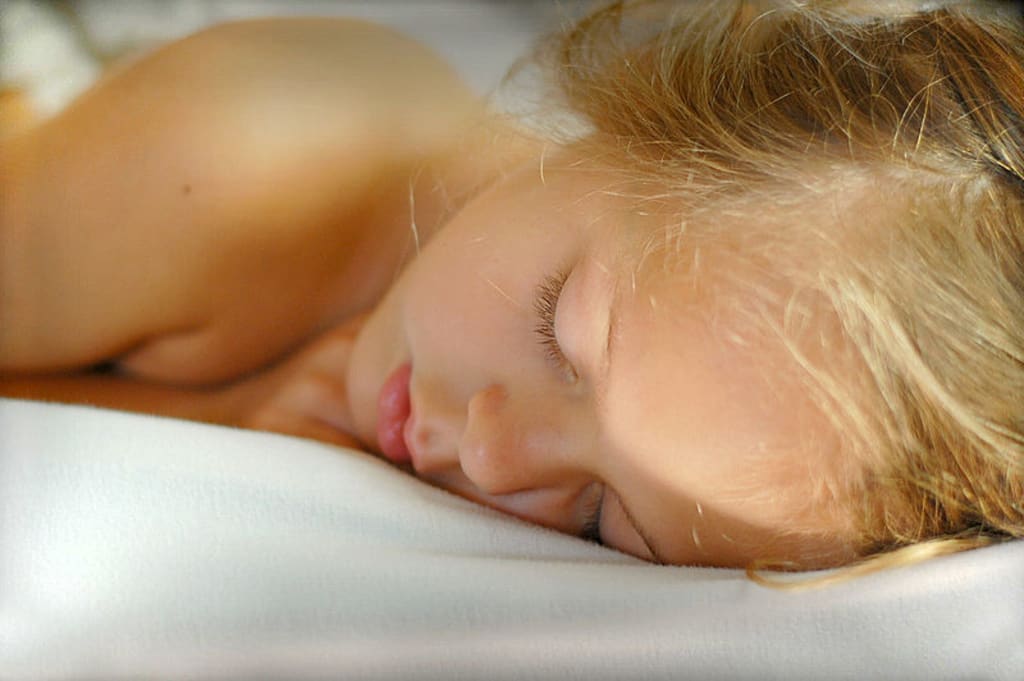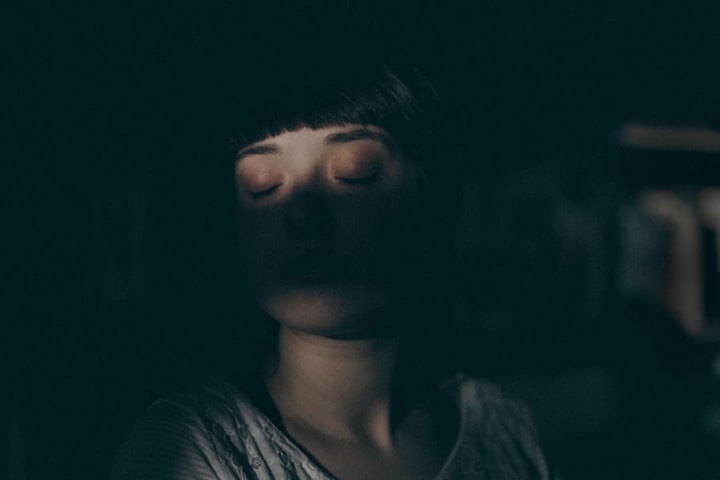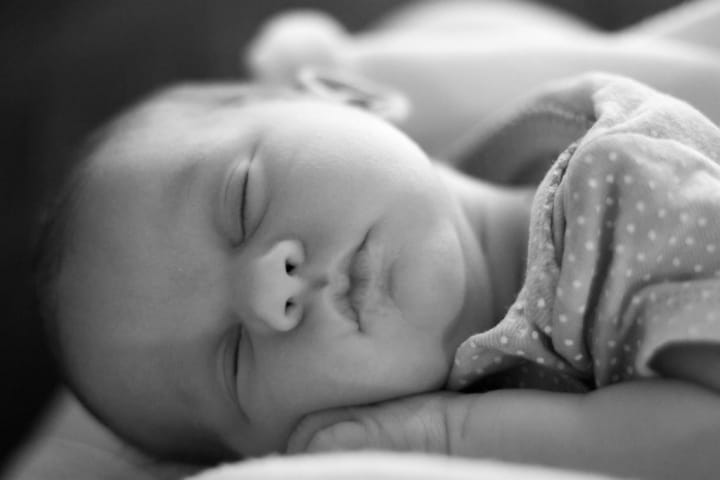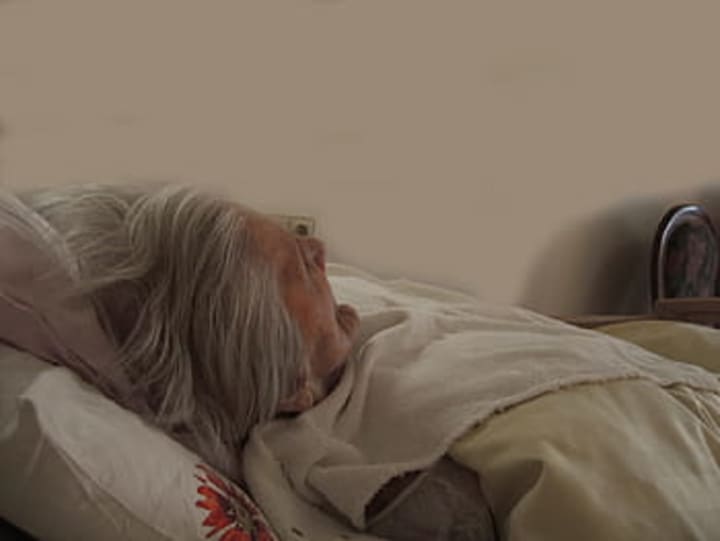Common Sleep Problems
Common Sleep Problems

Restless legs syndrome
One common sleep problem, called restless legs syndrome (RLS), can not only keep you up if you suffer from it, but it can be disturbing to your partner too. The clinical term for this condition is Willis-Ekbom Disease, and it is classified as a sleep disorder.
Symptoms of RLS
What happens when you have this is that when you get tired and are relaxed and inactive, you get a strange sensation in your legs, often described as “itchy” or “pins and needles” or even like there are bugs on the legs. The feeling compels or forces you to move them around to relieve the symptoms.
Types of RLS
Some people only have mild RLS that they don’t even notice unless their partner lets them know they are “jogging” in their sleep. Others have symptoms they define as completely intolerable, causing severe and consistent nightly sleep disruption for them and often their partners.
Who Gets RLS?
RLS can affect people from all walks of life, both sexes and children alike. Middle-aged women and older are typically more likely to have RLS but only slightly. It is thought that about 10 percent of the population has some level of RLS. Sadly, the lack of proper diagnosis gets in the way of treatment, which does offer relief.
RLS Treatments
RLS can be successfully treated with both drug therapy and drug-free therapies. Some of the treatments include working toward better sleep habits, hot baths, heating pads, and leg massages.
The medications that have been used successfully include dopaminergic, benzodiazepines, anticonvulsants, and even some narcotic pain relievers if one reason you’re having RLS is due to another illness that causes chronic pain.
There is no cure for RLS. However, most people can get relief from the drug-free options if their condition is not due to a specific cause or illness. Ensure that you seek attention from your primary care doctor regarding your concerns about RLS. Missing sleep due to RLS is a very good reason to talk to your doctor, as sleep is very important to your mental and physical health.

Snoring, sleep, and you
Everyone is familiar with snoring. Snoring may sometimes be used as a funny joke, but it also might be a sign of a serious condition. At the very least, it’s a problem that can interfere with restorative sleeping, which can lead to serious conditions such as weight gain, cardiovascular disease, and diabetes.
Causes of Snoring
Sometimes, snoring isn’t a symptom of anything. Everyone occasionally snores due to a cold, poor positioning, the weather, and so forth. If it doesn’t interfere with your sleep or someone else’s sleep, it’s not usually an issue. However, when snoring starts causing sleep problems, snoring can be a sign of a serious health issue such as obstructive sleep apnea.
Snoring can be caused by blocked nasal airways, poor throat and tongue muscle tone, a bulky throat due to obesity, having large tonsils, or a long soft palate or uvula. Your sleep position, alcohol use, and even a lack of sleep can all lead to snoring at various levels.
Diagnosing Snoring
If you are snoring a lot and it’s interfering with your sleep or your partner’s sleep, it’s time to go to your primary care provider. Usually, they’ll want to send you to get a sleep study or an imaging test or both. These tests can help determine what the cause of the snoring is, and that will inform how to treat it.
Treating Snoring
How your snoring is treated depends on the reasons for the snoring. Only your doctor can help you figure this out. The treatment you receive might be a combination of lifestyle changes, oral appliances, CPAP (continuous positive airways pressure), and sometimes surgery.
Why It’s Important to Treat Snoring
While there are usually no serious ramifications for regular snoring, if you are snoring due to another underlying condition such as obstructive sleep apnea, or if you are not getting a good night’s rest, it can be a strain on your body and lead to other complications over time such as weight gain, heart disease, and diabetes.
Even if you don’t think you’re missing sleep due to your snoring as reported by your partner, seek medical help from your doctor regarding the issue. You never know when you have a problem that is more serious than you may think. And even if sleep isn’t valued as much as it should be, getting restorative sleep is essential to your health.
Sleep apnea
Last time we talked about snoring and how one cause of snoring can be due to obstructive sleep apnea. Sleep apnea can cause you to snore very loudly because your actual breathing is being interrupted in some ways, many times each night, causing you to make the snoring noise.
Types of Sleep Apnea
There are two types of sleep apnea that you may be diagnosed with: obstructive and central sleep apnea. Obstructive sleep apnea (OSA) is characterized by a physical blockage in the airway, such as the soft tissue in your throat or even your tongue or large uvula getting in the way. Central sleep apnea (CSA) is caused by your brain failing to signal to your muscles to breathe properly.
Who Gets Sleep Apnea
Sleep apnea mostly affects males over 40 years of age who are overweight or have a large-sized neck greater than 17 inches. Likewise, anyone who has large tonsils, a large tongue, or also happens to have a small jawbone is at risk.
If you know someone in your family who has sleep apnea, you may also develop it. If you have allergies, sinus problems, or a deviated septum, you can also end up with sleep apnea. Remember that while males are the most diagnosed, women can get it too.
Symptoms of Sleep Apnea
If you tend to wake up with a very dry sore throat, you may be snoring a lot. If you wake up feeling as if you’re choking or gasping or air, you may have sleep apnea. If you experience a lack of restorative sleep, even though you think you’ve been in bed for hours, you may have sleep apnea. Memory problems, brain fog, daytime sleepiness, and even moodiness are not uncommon for sleep apnea sufferers.
Problems with Sleep Apnea
Untreated sleep apnea can even be life-threatening, depending on the severity of the condition and the reason for it. You are going to be at a higher risk of high blood pressure, stroke, heart disease, diabetes, depression, and other problems. If you have co-illnesses with sleep apnea, your condition can be made worse due to the lack of sleep associated with both types of sleep apnea.
Diagnosis and Treatment
To be diagnosed with sleep apnea, you’ll need to get a sleep study. Some are done in a sleep center, and others can be sent home with you to do yourself. Basically, you’ll be hooked up with monitors while you sleep so they can determine what the issue is. Once they know the cause, you may be given an oral device such as a CPAP machine, or you may be recommended for surgery. Everyone will be recommended to change their lifestyle to improve health.
Narcolepsy
Some sleep disturbances are due to neurological disorders that cannot be cured but can be treated with medication and lifestyle changes. One such sleep problem is called narcolepsy.
What Is Narcolepsy?
This sleep disorder is characterized by the sufferer falling asleep at odd moments without warning. Sometimes it seems like the person with narcolepsy is experiencing a seizure due to how their sleep comes on. They can also lose muscle tone and be unable to control your muscles, which might translate into slurred speech due to loss of control of the tongue. This type is considered type 2 narcolepsy.
The truth is that someone with narcolepsy, regardless of type, has both their wake and sleep cycles disturbed. They cannot sleep when they want to, are unbearably sleepy during the day, and they may also simply fall asleep during any activity at any time, even if they believe they slept well all night long.
Problems with Narcolepsy
Narcolepsy can truly interfere with your life in a big way. It’s also often hard to diagnose as it’s not the first cause a doctor goes to when you complain about daytime sleepiness. Often, it’s only diagnosed when the symptoms get more severe, causing cataplexy, hallucinations, delusions, and even daytime sleep paralysis.
Causes of Narcolepsy
The cause of narcolepsy is in your brain and disruption of your REM sleep. REM sleep is the time of sleep that causes rapid eye movement and is very important for your brain to experience during sleep.
Narcolepsy is thought to be hereditary. If your parent has it, you have about 40 times more chance of developing it than someone without an affected parent.
Diagnosing Narcolepsy
To be diagnosed, you’ll need a physical exam, a sleep study, and other tests to determine if you have issues with your REM sleep. It’s a long process, but once you are diagnosed, treatment can begin.
To treat narcolepsy, your doctor will recommend many options such as lifestyle changes so that you can be healthier, following a strict sleep schedule, and potentially stimulants for daytime sleepiness. For some people with other issues, treating those may help too. Each treatment will be individual for the sufferer depending on the results of the diagnostic testing.

Sleep terrors
One very disturbing sleep problem is known as sleep terrors or night terrors. And yes, it’s just as bad as it sounds. Sleep terrors include screaming, crying, fighting, and fear while asleep, with no recall of what happened afterwards. Sometimes the sufferer can wake during the event. Other times they cannot, and most of the time, there is no memory.
What a Night Terror Looks Like
A person experiencing a night terror will often have a fast heart rate, fast breathing, sweating, and dilated pupils. It’s obvious that the person going through the night terror episode is truly scared – hence the word terror.
Usually, the person suffering is under 12 years of age. Night terrors often start around 3 years of age and can happen just a few times or can last longer depending on the child. Some adults also experience night terrors, but it’s very rare.
A child who is suffering from sleep terrors may sit up in bed, flail around, scream, and they may even sleepwalk. Usually, they don’t talk, and they don’t know who anyone is who is helping them even if their eyes are open.
The reason is that they are still sleeping. You can tell because their eyes will be dilated. They don’t tend to respond well to any type of comfort and it can take 30 minutes before the child relaxes and falls back into normal sleep.
The factors that lead to night terrors are not fully known, because for some people there seems to be no real cause. Having said that, stress, anxiety, depression, illness, and even poor diet can figure into the reasons for the person having sleep terrors. Talking to a doctor if the episodes happen often is a good idea to ensure no other issues are going on health-wise.
To get a diagnosis of sleep terrors or night terrors, you’ll need to talk to your doctor about your child’s symptoms. They’ll likely order a sleep study, an EEG to find out if the brain is acting right, and after that, they will give you ideas for treatment. How you treat sleep terrors depends on the cause but also the severity and how it’s affecting life. Diet, drug therapy, and counseling might be in order depending on the age of the sufferer.
Treating sleep terrors is very important because good sleep is vital for good health. Studies show that lack of restorative sleep in the evening, totaling 7 to 9 hours a night for most adults, and 11 to 14 hours of sleep for children, helps prevent illness and improves health. Treating any conditions that get in the way is imperative.
Long made into a funny joke, sleepwalking is something that the person who suffers from doesn’t think is very funny. It’s unsettling to not be in control of when you choose to get up and walk around. Since most sleepwalkers don’t remember walking around, it can cause anxiety surrounding sleep, causing even more disturbances.
Somnambulism is classified as a behavior disorder. It starts during deep sleep and causes the person to walk around, sit up in bed, leave the house, and more – all while totally asleep. It mostly happens in children, but adults can also suffer from the disorder. Some very stressed-out adults have even driven to work in their sleep.
Many people who sleepwalk talk in their sleep, have no memory of the event, and may even react in a violent way when someone is trying to wake them or lead them back to bed during the episode. Sufferers have even urinated in closets while asleep during an episode.
Treatment Options
The treatment for sleepwalking consists of improving your sleep environment and even the addition of alarm monitors to help alert the sleepwalker as well as other household members so that they can keep the sleepwalker safe from harm. Some people have seen good results from lifestyle changes, hypnosis, and mediation such as antidepressants to help deal with whatever underlying issue is contributing to the problem.
One of the most important things you can do if you are a sleepwalker or someone you love is, is to ensure that the sleeping environment is extra safe. Putting a sleepwalker in the bottom bunk, ensuring the path they walk in is clear, and locking doors to the outside as well as hiding car keys or setting up alarms are good ways to ensure no one is hurt.
The main thing to remember is that most of the time, the episodes are temporary. If you ensure the safety of the sleepwalker, nothing can happen to them due to sleepwalking. Other than the loss of restful night-time sleep, which can result in a decline in health, sleepwalking on its own is not a sign of anything serious.
Next time, we’re going to look at some common sleep problems in young children.

Common sleep problems in young children and how to deal with them
The fact is, about half of all children have some issues with sleep. However, in most cases, it’s easy enough to deal with if you know what’s happening. These common sleep problems are issues that you can deal with and get help for, so don’t worry yourself too much.
Obstructive Sleep Apnea (OSA)
You may be surprised to find out that around five percent of the children who go to the doctor with serious sleep issues have obstructive sleep apnea. This is characterized by snoring, weird sleep positions, headaches, and other symptoms.
If your child is having issues sleeping and you have heard them snoring, take them to the pediatrician and ask for a sleep study. You can often do the sleep study right in the comfort of your home with a device that you’ll set up for your child.
If OSA is diagnosed, the doctor will recommend some form of treatment based on the child’s age. They may recommend a tonsillectomy, fixing the sinus or other treatments, including a breathing mask depending upon the cause of the problem.
Sleepwalking
If your child sleepwalks, it can be disturbing for them and the entire family. It’s hard to sleep knowing your child could get up and walk right out of the house or fall and trip due to sleepwalking. So, in this case, your own sleep is also greatly disturbed.
If your child sleepwalks, you may want to figure out if something is bothering them as some kids sleepwalk due to behavioral issues. Others just do it spontaneously for no reason. Chances are that if you sleepwalked as a child, your kid might too.
Take your child to the pediatrician just to make sure nothing else is going on. Then work on calming bedtime routines that help cut down on stress. A night-time bath, a quiet book to read, and dimmed lights away from technology is often all the child needs. For worse conditions, you may want to invest in an alarm that wakes you up if your child gets out of bed.
Delayed Sleep Phase Disorder (DSPD)
Another issue that can affect a child is something called delayed sleep phase disorder. This affects about 16% of children who seek treatment for sleep issues. It’s usually something that affects at least one parent or grandparent too.
DSPD is characterized by difficulty in falling asleep and waking up. It is a disturbance of the circadian rhythm. Some people might refer to sufferers as night owls, but this is much worse and makes it hard for the child to focus when they are awake. Often, light therapy can help, as can turning off all screens about two hours before bed.
Anytime something new happens with your child’s sleep habits that last longer than a week or two, it’s something you may want to talk to your pediatrician about so that you avoid worse problems. Sleep is very important to children for their growth and brain development.
Common sleep problems in older kids and how to deal with them
Older kids sometimes have sleep problems too. Once a child is about 7 to 11 years old, their mind wakes up in a whole new way than before. This, in and of itself, can sometimes cause issues for kids getting enough sleep.
Insomnia
As children start realizing there is a much bigger world surrounding them than they may have thought, they may develop insomnia.
Insomnia can be caused by anxiety, and then the anxiety gets out of control and ends up causing the problem of lack of sleep, which in turn makes the anxiety even worse, which then makes insomnia worse – creating a vicious circle.
If you realize your child is suffering from insomnia, you can work on creating a better sleep schedule as well as a calmer environment at home and in the bedroom, and ensure your child gets daytime light before 2 pm every single day for at least 20 minutes. This will help reset the circadian rhythms.
Behavioral Issues
As children age, they try to separate from you as the boss in their life. They do this so that by the time they’re adults – which their body thinks is when they finish going through puberty, but you know it isn’t until they’re about 30.
When a child has behavioral issues that are affecting their sleep, the best thing to do is to seek a professional child counselor who is well versed in sleep conditions and behavioral issues that cause sleep problems.
One thing that works for this age is to set up a sleeping chart with stars so that you can reward them when they go to bed on time, even if they just lie there quietly and don’t fall asleep. That way, instead of punishing them, they learn positive reinforcement for good behaviors.
Restless Legs Syndrome (RLS)
RLS can affect a lot of children and can be the first sign of hyperactivity in a child. Sadly, when a child has this condition, it makes it hard for them to sleep well, but it also makes it hard for a parent to sleep with them and cuddle them like normal. It’s also a condition that is inherited.
One thing to do is take your child to the pediatrician to get blood tests. Sometimes a simple vitamin deficiency can be responsible. For example, some kids with low iron have restless legs syndrome. Sadly, there is no drug approved for kids for RLS, but you can use other methods like a warm bath, massage, and a weighted blanket to help them get more sleep.
These conditions can affect anyone at any age, but one reason they happen in older children is simply due to the world opening for them. They get overstimulated, and that can cause sleep disturbances. As always, when you are concerned about your child’s sleep habits, talk to your pediatrician about it during appointments.
Common sleep problems in teens and how to deal with them
When you think about teenagers and sleep, you probably think about them sleeping until 2 pm if you don’t wake them up. However, some things we think are normal may not be. If your teenager complains about their lack of restorative sleep, make it a priority to help them figure it out because sleep is essential for clear skin, healthy weight, and properly functioning organs.
Acid Reflux
Many teenagers suffer from acid reflux and don’t really realize it. The poor diet that many teens eat is the culprit most of the time, but sometimes a person can have a small deformity of the esophagus that allows acid to leak back, causing the sleep disturbances but clearing up when the child is sitting up.
If your child has a sore throat upon waking, take them to the doctor to have their throat examined to figure out if they have acid reflux. If they do have a sore throat, realize that finding out the cause is essential because the medications for it are not very healthy and can even cause cancer.
In addition to a diet change, getting rid of all carbonated beverages, caffeine, fruit juices, tomato products, and really anything but water for a beverage can make a big difference. You can also raise the top of the bed and get special pillows to help your teenager sleep in a better position.
Obstructive Sleep Apnea
OSA can cause snoring, gagging, and other issues while sleeping. Often the person with it doesn’t even realize there is a problem, but they will be tired all day even after “sleeping” all night.
If your child seems to sleep and you have heard them snore or gasp in their sleep, but they are still is tired and exhibiting behavior or other issues due to lack of sleep, talk to the pediatrician about doing a sleep study. Not all sleep studies have to be done in a lab. Some can be done at home now and are not as intrusive.
Once you figure out the cause, you can address the cure. For some, that might mean surgery. For others, it could be an appliance. For even more kids, they’ll probably benefit from a diet change so that they’re not overweight.
PLMD and RLS
Periodic limb movements and restless legs syndrome are very disturbing sleep issues that can happen at any age, especially if a relative has the issue too. Often the conditions appear together and are characterized by uncontrolled movements of the upper (PLMD) and lower (RLS) extremities.
These movements either wake up the teen or keep them from being able to fall asleep. They often start happening right as they are going into sleep, thus waking them up.
If your teenager has this problem, take them to the pediatrician because there could be simple vitamin deficiencies causing the problem. Many people who suffer from one of these have low iron, and a folate supplement might be all that is needed. But it can also be a sign of a more serious issue with iron, so don’t try to treat that on your own.
Night Terrors
Just like young kids often experience night terrors and nightmares, teenagers are more likely than anyone to have nightmares. The main reason is that there is a lot of unknowns in the world and they are worried even when they don’t realize it. That worry then manifests in their dreams.
If your teen is having nightmares that wake them up and disturb their sleep more than three times in a month, schedule an appointment with the pediatrician so that you can get blood work to ensure vitamin levels are right. And if they are, then schedule a counseling appointment too.
Teenagers often just need someone outside the family to talk to, even when they don’t know it. If your teen is having nightmares – and worse, night terrors – the counseling is going to help identify the cause and help them learn to deal with it so they can go back to sleeping normally.
Talking to your teen and getting them to work on a sleep plan together is the best way to deal with any sleep issues they have. You cannot punish or force a teenager to sleep, and threatening them will not work. Instead, treat them the way you’d want to be treated and help them solve the problem in a way that works for them.
Look out for the next email, where we’ll discuss sleep problems in the elderly and how to deal with them.

Common sleep problems in the elderly and how to deal with them
Sleep problems hit people of all ages, and sometimes it seems like it’s much worse for the elderly. The thing is that as we age, our bodies go through a lot of changes, including how we process hormones. We also experience more health issues as we age, which can cause problems with sleep.
Obstructive Sleep Apnea
When an elderly person gets OSA, it can be a dangerous sign for the future if not treated right away. People don’t realize it, but you can actually fall asleep and die in your bed if you’re not breathing correctly.
If you wake up with a sore throat, feeling unrested, and fall asleep easily when you’re supposed to be awake and have trouble when it’s time for bed, go to your physician and ask for a sleep study. A lot of people ignore this and think it’s just normal for an elderly person to fall asleep standing up at all times of the day.
However, it’s not normal, and treatment can vastly improve the life of an elderly person with OSA. Today’s CPAP machines are much quieter and easier to clean than in the past, and most people can find a comfortable way to sleep with them and end up much healthier and well-rested after just a couple of weeks.
Circadian Rhythm Disorder
Some elderly people end up on a strange schedule due to not being as socially minded as they were before. It might be harder to get out of doors, and they may be spending more time with screens and television at home with the curtains drawn than in the past.
If a body doesn’t get enough natural light, it gets confused about when it’s supposed to sleep. When that happens, sleep gets disturbed, and you end up feeling tired and unwell due to not sleeping correctly.
If this is your problem, you can solve it with medication or by ensuring you get plenty of sunshine each day. Even sitting by an open window for about 20 minutes will help. If you live in a dark climate, getting a “happy” light or full-spectrum light can help too.
Restless Legs Syndrome and Periodic Limb Movement Disorder
RLS and PLMD are both characterized by unwanted movements of the extremities. Sufferers describe it as a tingly “bug-like” feeling that makes them move, or they feel very uncomfortable. This interferes with sleep in many ways.
Even if you don’t know it consciously, you’re not getting adequate rest if you have this constant movement. If this is your problem, then you will need to seek medical attention. It can be something as simple as a vitamin deficiency causing it, but it can be something that cannot be solved without medication to help you sleep.
Some people find relief using massage, warm baths, exercise, and weighted blankets to help reduce the stimulation which causes the need to keep moving the limbs.
Medications and Substances
Sometimes the elderly take a lot of different medications, and many don’t question their doctor about the meds prescribed. If you are taking medications and are having issues sleeping, then you need to read all the side effects that the meds cause and change the ones when you can that are causing you not to be able to sleep.
Pain and Illness
As we age, some illnesses are expected, such as joint issues, arthritis, and other things that can cause pain. If you have pain, it’s going to be hard to get restful sleep. Finding ways to deal with that by investing in a better mattress, creating an oasis in your bedroom, and finding ways to relieve pain such as hot or cold compresses, massage, and other natural methods can make all the difference.
Anytime you or someone you love has a sleep problem, don’t brush it aside as if it doesn’t matter. We don’t place enough importance on sleep in most western societies, and that is a mistake. Sleeping enough is essential to living a healthy life. It’s just as important as eating right, exercising, and staying hydrated.






Comments
There are no comments for this story
Be the first to respond and start the conversation.